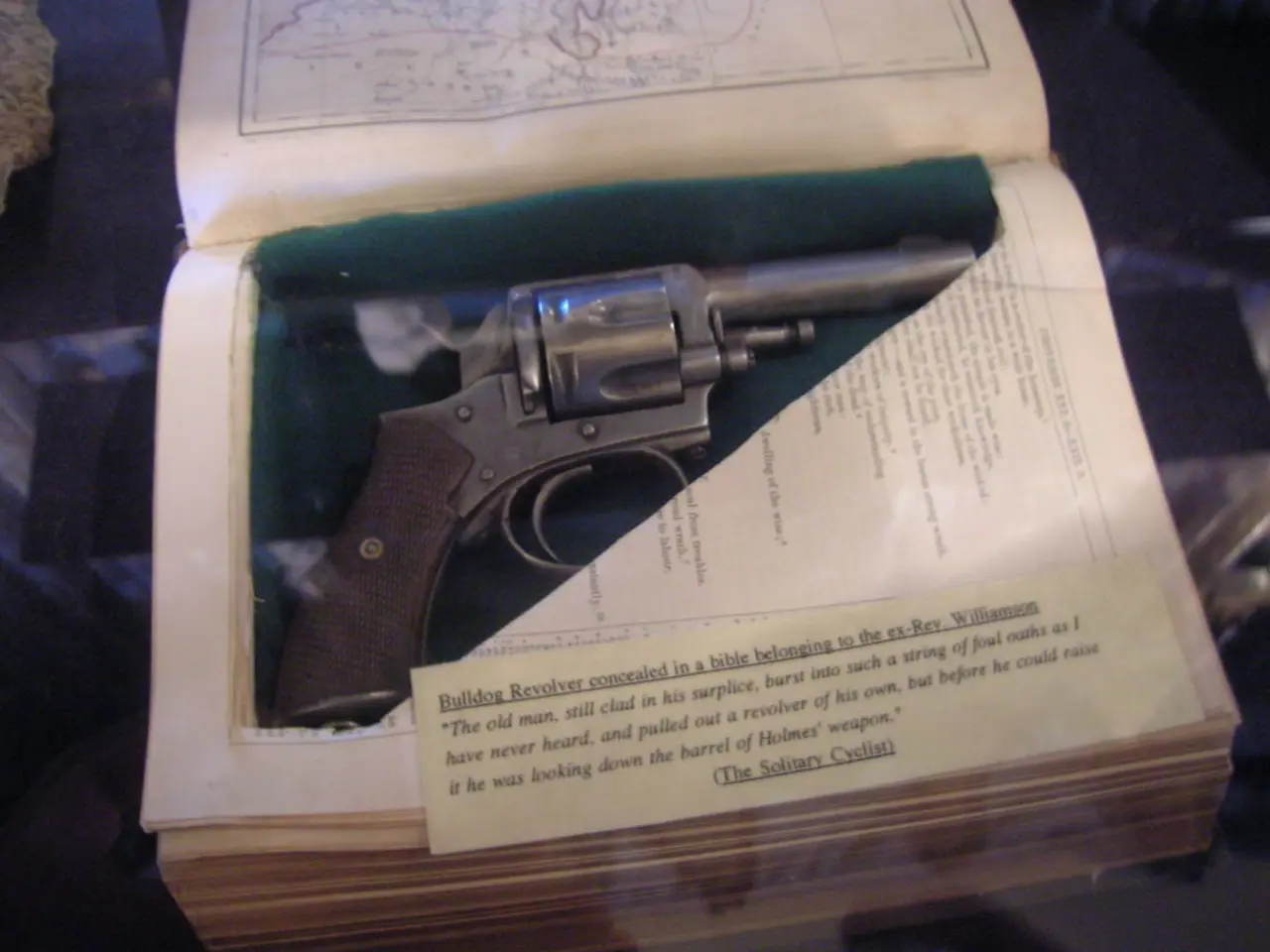Gun-wielding suspect in Manhattan incident had prior arrest and two psychiatric detainments, reports indicate. Despite this history, how did he manage to acquire firearms?
In the wake of a tragic shooting in a Midtown Manhattan office building that left four people dead and another injured, questions are being raised about the role of mental health and gun ownership. The gunman, identified as Shane Devon Tamura, had a license to carry a concealed weapon in his home state of Nevada, but his mental health history and past run-ins with law enforcement may have been overlooked in the acquisition of the firearm.
Tamura initially purchased an aftermarket trigger assembly for an M4 rifle at a Las Vegas gun show in June, but returned the item the next day. He later purchased the trigger assembly again. The style of weapon used in the shooting, an AR-15 style rifle, has been commonly seen in some of the nation's deadliest mass shootings.
New York Governor Kathy Hochul has called for a national assault weapon ban in response to the shooting, criticizing "much looser laws in the State of Nevada than we have here." She accused GOP counterparts of being "intimidated by the gun lobby" and called for a national awakening on the issue.
The case is raising questions about the sharing of mental health data for firearm background checks. It's difficult to say whether Tamura's psychiatric holds would have shown up in a background check or prevented him from purchasing weapons. Federal law prohibits anyone prohibited from possessing a firearm—such as individuals adjudicated as mentally defective or committed to mental institutions—from acquiring guns. However, enforcement relies heavily on background checks required primarily of licensed dealers.
In cases where a person was declared incompetent by a court, faced a restraining order, involuntarily committed or deemed a danger to themselves or others due to a mental illness, the federal government restricts firearm ownership and states largely follow federal law with some variations. However, private sales between two parties in Nevada require a federal background check before the transfer is complete.
Private sellers who knowingly transfer firearms to prohibited persons, including those with mental health disqualifications, violate the law. The legal situation depends on whether the person is legally prohibited from possessing firearms at the time of purchase under federal or state law, whether the unlicensed seller performs any background check or asks about mental health history, and the specific state laws regulating private sales, background checks, and prohibited persons.
In the case of Tamura, it remains unclear whether his mental health history would have been flagged in a background check, or if the unlicensed seller conducted any checks. The search of his car turned up additional ammunition, another loaded weapon, headphones potentially used for target practice, two cell phones, the antidepressant Zoloft, and cannabis.
Under federal law, an unlicensed person buying a firearm directly from a gun dealer must undergo a background check, but those who already have a concealed carry permit may be exempt. However, the specifics of state laws vary. For example, Ohio law does not require a state permit or license to buy firearms but makes it a felony for certain prohibited persons (which can include those with disqualifying mental health issues) to purchase or possess firearms.
In summary, private gun sales to persons with a disqualifying mental health history are federally prohibited, but enforcement relies heavily on background checks required primarily of licensed dealers. States may impose additional obligations on private sellers to avoid illegal transfers. Concealed carry permits do not override prohibitions related to mental health status. Sellers and buyers must both comply with overlapping federal and state laws, which together aim to prevent prohibited persons from acquiring firearms, regardless of whether the seller is licensed.
- The tragic shooting in Manhattan has sparked discussions about the role of mental health and gun ownership, with questions arising on whether mental health data should be shared for firearm background checks.
- Governor Kathy Hochul has advocated for a national assault weapon ban, citing looser laws in certain states, such as Nevada, as a contributing factor to the issue, and accusing GOP counterparts of being influenced by the gun lobby.
- The case of Shane Devon Tamura, the gunman in the shooting, highlights the complexities surrounding private gun sales to prohibited individuals, including those with mental health disqualifications, as it remains uncertain if his history would have been flagged in a background check or if the unlicensed seller conducted any checks.




